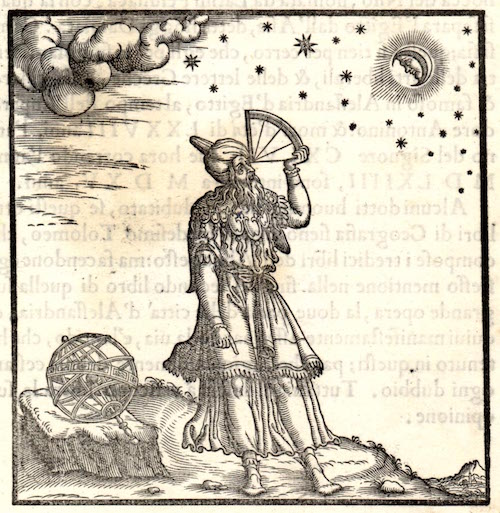 Evolution
Evolution
 Intelligent Design
Intelligent Design
Ten Myths About Dover: #8, “Michael Behe Admitted that ID Is No More Scientific than Astrology”

Editor’s note: The Kitzmiller v. Dover decision has been the subject of much media attention and many misinterpretations from pro-Darwin lobby groups. With the tenth anniversary of Kitzmiller approaching on December 20, Evolution News offers a series of ten articles debunking common myths about the case. Look here for Myths 1, 2, 3, 4, 5, 6, 7, 8, 9, and 10.
In the Dover ruling, Judge Jones said this: “Professor Behe admitted that his broadened definition of science, which encompasses ID, would also embrace astrology.” This “admission” is in fact a gross distortion of what Behe said. Did Behe really concede that ID is no more scientific than astrology? No. Yet we see this myth repeated all over the Internet and in other media:
- New Scientist, for one, reported at the time: “Astrology is scientific theory, courtroom told. “
- The PBS documentary Judgment Day offered a dramatized and sharply truncated account of Behe’s Kitzmiller testimony, making it appear as if he said that ID is no more scientific than astrology.
- Or as Southern Methodist University biology professor John Wise claimed: “During the Kitzmiller v. Dover Board of Education trial, Prof. Michael Behe — a leading proponent of Intelligent Design — stated under oath that ‘under the broad definition of science that ID proponents prefer, astrology also qualifies as science’.” That alleged quote from Behe is an invention. It doesn’t exist.
- Media Matters wrongly stated: “[Judge] Jones noted in his ruling that both [Discovery Institute Fellows Michael Behe and Scott Minnich] were trapped during cross examination into admitting that treating intelligent design as science would also allow astrology and ‘supernatural forces’ to be treated as such.”
Actually, the incident in question involved only Dr. Behe — Dr. Minnich was never asked about “astrology.” Even so, Media Matters gets things totally wrong.
In the Dover ruling, Judge Jones cited Behe’s definition of science, claiming that it shows Behe’s “mission … to change the ground rules of science to allow supernatural causation of the natural world.” So what was Behe’s definition of science that was supposedly so extreme and dangerous? Here it is:
Under my definition, a scientific theory is a proposed explanation which focuses or points to physical, observable data and logical inferences.
Yes, that’s Michael Behe’s definition of science. In its entirety. Do you see anything about astrology or the supernatural there? I don’t.
It was the plaintiffs’ attorney, not Behe, who decided to bring astrology into the conversation. When pressed about astrology by the opposing attorney, Behe went on to explain:
There are many things throughout the history of science which we now think to be incorrect which nonetheless would fit that — which would fit that definition. Yes, astrology is in fact one, and so is the ether theory of the propagation of light, and many other — many other theories as well.
Given what he says, Darwinian evolution fits just as well under Behe’s definition of science, but that doesn’t mean it is like astrology (or requires the supernatural) any more than it means that ID is like astrology or requires the supernatural.
How, then, did the myth arise? Judge Jones and many ID critics have employed a logical fallacy — the fallacy of the undistributed middle. They claim that if ID and astrology both fit under Behe’s definition of science, then ID must be some kind of a supernatural astrology-like explanation.
Of course, it’s logically fallacious to claim that if two concepts (say, ID and astrology, or evolution and astrology) both fit under Behe’s broad definition of science, therefore they share the same flaws. By the same logic, watch out because Darwinian evolution must be just like astrology too.
Needless to say, Behe and all ID scientists reject astrology. What ID’s critics fail to acknowledge is that five hundred years ago, the scientific “consensus” would have claimed (erroneously) that astrology meets the U.S. National Academy of Science’s definition of a scientific theory: “a well-substantiated explanation of some aspect of the natural world that can incorporate facts, laws, and tested hypotheses.” Indeed, Galileo practiced and taught astrology — but the fact that he was wrong about this doesn’t mean that every aspect of the rest of his science should be rejected.
The problem with astrology is not that it could have fit the NAS’s definition of a scientific theory, or Michael Behe’s definition. The problem with astrology is simple: It’s not supported by the evidence. After all, an idea that is “science” or “scientific” can still be flatly wrong.
Image: Ptolemy as astrologer, via Wikicommons.
